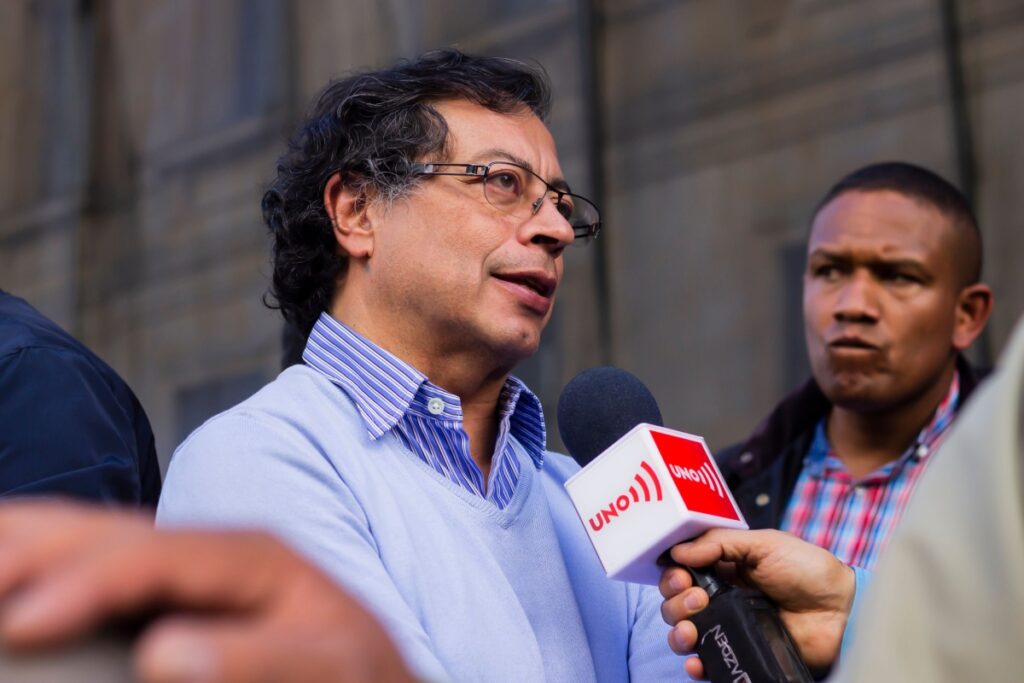The Trump administration has placed Colombia on its official list of countries failing to meet international obligations in the fight against drugs, a process known as decertification. This is the first time in roughly three decades that Colombia, a long-standing U.S. ally in anti-narcotics operations, has been designated in this way. The decision underscores Washington’s mounting concern over the steep rise in coca cultivation, the raw material for cocaine production, inside Colombian territory.
U.S. Decertifies Colombia After Surge In Coca Cultivation
In 2023, the U.S. government reported an unprecedented, nearly threefold increase in land used for coca cultivation over the last decade, reaching an estimated 253,000 hectares. This surge, also confirmed by the United Nations Office on Drugs and Crime (UNODC) with record levels of coca leaf cultivation and cocaine output, was attributed in a U.S. report to Congress to shortcomings in national leadership under Colombian President Gustavo Petro. Despite this, the report acknowledged the skill and courage of security forces and local authorities, whose efforts on the ground have otherwise been effective.
Petro Rejects Allegations And Accuses Washington Of Interference
President Gustavo Petro responded forcefully, denouncing the U.S. decision as politically motivated and aimed at destabilizing his administration. In messages shared on X (formerly Twitter), Petro accused Washington of seeking a “puppet president” in Bogotá and vowed never to allow Colombia to be “subjugated.” He emphasized that his government would not criminalize or repress coca-growing peasants, many of whom depend on the crop for survival in impoverished rural areas.
Petro has repeatedly questioned the effectiveness of U.S. anti-narcotics policies, arguing that the emphasis on eradication has failed to deliver results and has often hurt vulnerable communities. In previous speeches, he suggested that alcohol, particularly whisky, causes more deaths globally than cocaine, highlighting what he sees as a double standard in global drug policy. He has also criticized U.S. strategies in neighboring Venezuela, asserting that regional approaches often prioritize U.S. geopolitical interests rather than the realities of Latin America’s social and economic challenges.
The president’s remarks feed into a broader narrative of sovereignty and independence from Washington, positioning his administration as resistant to foreign pressure. His rhetoric has further fueled debate ahead of Colombia’s upcoming presidential election, where anti-American sentiment is likely to play a significant role in political campaigning.
Diplomatic Fallout And Strategic Consequences
Despite decertification, the U.S. issued a waiver preventing major aid cuts to Colombia, ensuring continued consular, humanitarian, and defense cooperation. John McNamara, charge d’affaires at the U.S. Embassy in Bogotá, affirmed Washington’s commitment to fighting illicit drugs and recognized Colombia as a strategic partner.
However, diplomatic implications are significant, potentially straining relations. Sandra Borda, a professor at Los Andes University, noted that while security collaboration will likely continue, decertification gives President Petro political leverage to portray himself as a defender of national dignity. The U.S. Department of State also expressed concern over Petro’s negotiations with “narco-terrorist organizations,” citing no measurable decline in drug trafficking. U.S. Secretary of State Marco Rubio called Petro “erratic” and unreliable in addressing organized crime.
Cocaine Boom And Policy Disagreements
The expansion of coca cultivation has broader implications for both Colombia and the global cocaine market. The UNODC’s latest report indicates that Colombia remains the world’s leading supplier of cocaine, with production levels reaching historic highs. This not only intensifies the challenges of domestic governance but also has ripple effects on global trafficking networks, particularly in Europe and North America, where demand remains strong.
Experts note that policy disagreements between the two nations have exacerbated the crisis. The Petro administration has resisted large-scale forced eradication programs, citing humanitarian concerns and the need to invest in alternative development projects. Washington, on the other hand, continues to advocate for aggressive eradication measures, including aerial spraying, which Colombia banned due to environmental and health risks. The clash of strategies reflects a deeper philosophical divide: whether drug policy should prioritize enforcement and suppression or address underlying socio-economic conditions.
The current standoff illustrates the complexities of the international drug war, where domestic politics, foreign relations, and economic realities intertwine. For Colombia, balancing internal development goals with external expectations remains a delicate task. For the United States, the challenge lies in addressing the cocaine trade without alienating one of its historically closest partners in the region.



